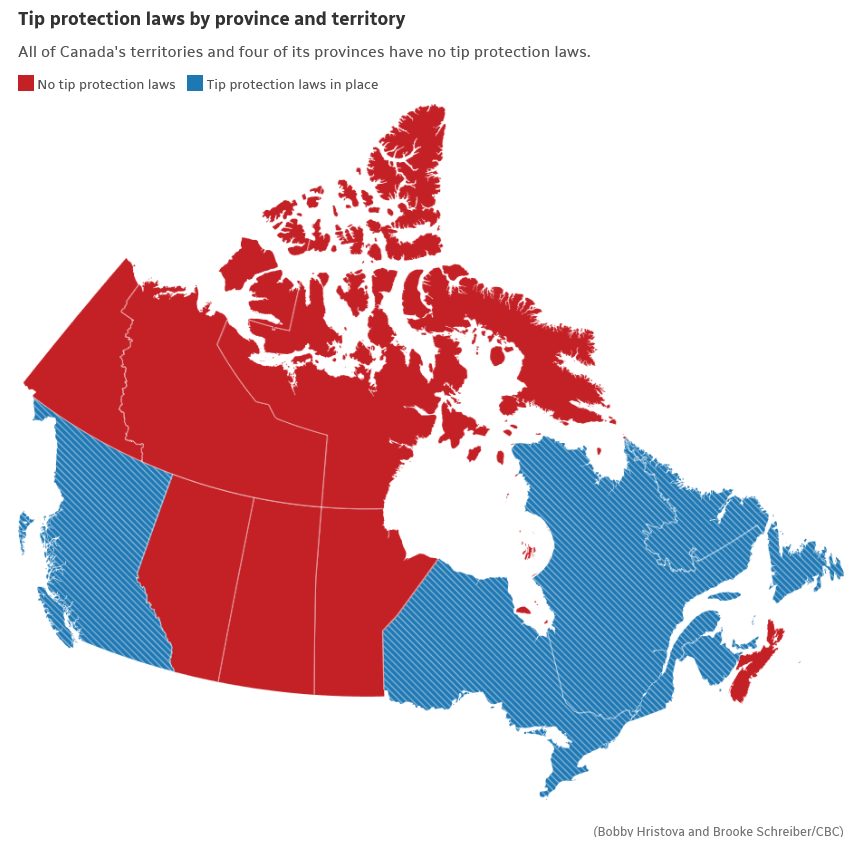
'It's not just workers at fast-food industries, it's not just workers at high-end restaurants … it really is widespread'

While the culture of tipping is growing across Canada, some workers are not benefitting from what the customers gives, according to a recent report.
Many businesses now include tip prompts on payment terminals, with suggested amounts as high as 30%, according to a report from CBC, citing data from payment technology company Square.
And the average tip left on Square’s platform rose from 16% in 2019 to 20% in 2023.
However, hundreds of workers have claimed that they have been victims of “tip theft,” found a hidden camera investigation involving 100 businesses by CBC's Marketplace. CBC journalists went undercover, posing as consumers, to businesses — including sit-down restaurants, fast food, retail, auto service centres and self-serve kiosks.
"Some of those places are actually breaking the [employment standards] law, but it's easy to hide," Michael von Massow, a professor at the University of Guelph who studies the economy of food and tipping, told the CBC.
Canada has no federal tip-protection laws, leaving it up to provincial jurisdiction. Employers in provinces like P.E.I., Quebec, and Newfoundland and Labrador are prohibited from withholding tips. In Ontario and B.C., employers may only claim a portion of tips if they are directly involved in customer service. However, no such protections exist in other provinces and territories, leaving workers vulnerable, says the report.

Source: CBC
In a previous case, an employee questioned her employer’s policy of retaining tips, and claimed she suffered for it.
Last year, The Halifax Workers' Action Centre surveyed workers and found 73 per cent of respondents said they or a co-worker have had their tips "stolen" before, said Sydnee Blum, executive director, in the CBC report.
"It's not just workers at fast-food industries, it's not just workers at high-end restaurants … it really is widespread," she said. "If we're looking at the course of a year, sometimes it can be thousands of dollars."
Talking about tip theft, Carolyn Krahn, executive director of the Workers' Resource Centre in Alberta, said that "newcomers to Canada are often more subject to this type of exploitation”.
Blum and Krahn are pushing for stronger tip-protection laws across Canada and urging provinces to treat tips as wages. Specifically, Blum supports having laws that make a tip part of a worker's wages.
Under Working for Workers Four Act, 2024, Ontario required employers to post in the workplace if they have a policy of sharing in pooled tips – which is something that is only allowed if they perform the same work as their staff.